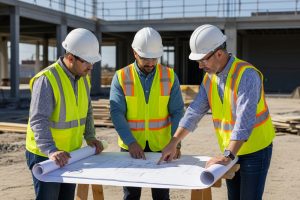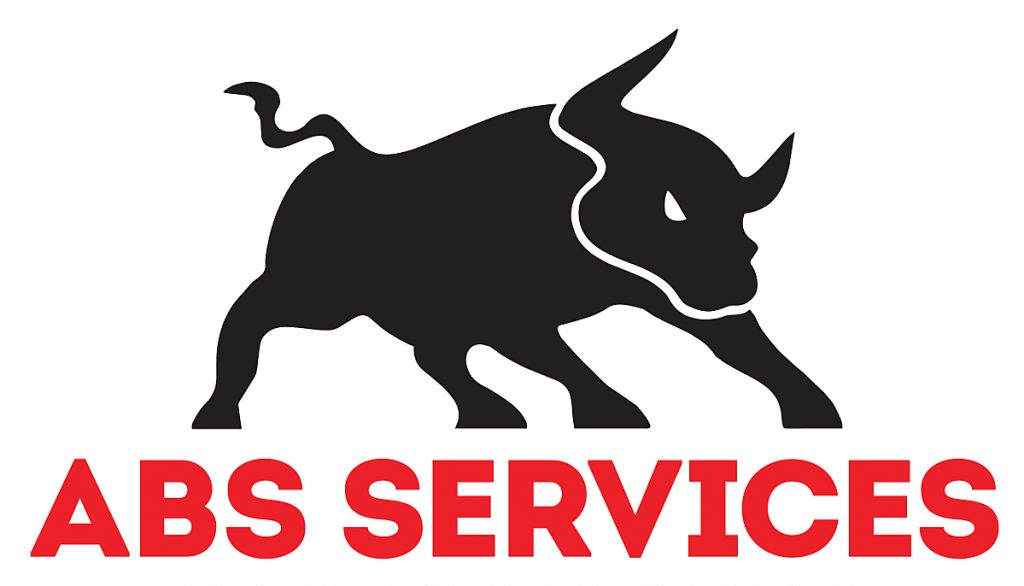 The commercial construction landscape is undergoing a significant transformation. With advancements in technology, shifts in consumer preferences, and a growing emphasis on sustainability, the industry is poised for a new era of innovation and efficiency. This article delves into the top ten trends that are shaping the future of commercial construction, providing insights into how these developments will influence design, building practices, and overall project management.
The commercial construction landscape is undergoing a significant transformation. With advancements in technology, shifts in consumer preferences, and a growing emphasis on sustainability, the industry is poised for a new era of innovation and efficiency. This article delves into the top ten trends that are shaping the future of commercial construction, providing insights into how these developments will influence design, building practices, and overall project management.
Understanding the Importance of Commercial Renovation
Commercial renovation is not merely about aesthetics; it plays a crucial role in enhancing a building’s functionality, safety, and energy efficiency. As businesses adapt to changing market conditions, the need for updated spaces that cater to both employees and customers becomes paramount. Renovating a commercial property can lead to increased occupancy rates, improved tenant satisfaction, and a higher resale value.
Benefits of Renovation
-
- Enhanced Aesthetics: A fresh look can attract more customers and create a welcoming environment.
- Improved Functionality: Renovations can optimize space usage, making it more efficient for business operations.
- Energy Efficiency: Upgrading systems can lead to significant cost savings on utilities.
- Increased Safety: Modern renovations often include updates to meet current safety standards.
- Higher Property Value: Well-executed renovations can boost the overall value of the property.
Sustainable Design Practices
As environmental concerns continue to rise, sustainable design practices have become a focal point in commercial construction and renovation. Implementing eco-friendly solutions not only benefits the planet but also enhances the building’s appeal to environmentally conscious tenants.
Key Sustainable Practices
-
- Energy-Efficient Systems: Upgrading to energy-efficient HVAC systems, LED lighting, and smart thermostats can drastically reduce energy consumption.
- Use of Renewable Materials: Incorporating materials like reclaimed wood and recycled glass can add character while minimizing environmental impact.
- Green Certifications: Pursuing certifications such as LEED (Leadership in Energy and Environmental Design) can attract tenants and investors who prioritize sustainability.
Embracing Technology Integration
The integration of technology in commercial spaces is transforming how businesses operate. Smart building technologies enhance efficiency, security, and comfort for occupants.
Smart Building Solutions
-
- Automated Systems: Implementing automated lighting, heating, and cooling systems can optimize energy use based on occupancy.
- IoT Sensors: Internet of Things (IoT) devices can monitor building conditions in real-time, allowing for predictive maintenance and improved energy management.
- Enhanced Security Features: Advanced security systems, including surveillance cameras and access control, provide peace of mind for tenants and visitors.
Flexible and Adaptive Spaces
The modern workforce is increasingly embracing flexible work arrangements. As a result, commercial spaces must adapt to accommodate various work styles and preferences.
Designing for Flexibility
-
- Open Floor Plans: Removing physical barriers can foster collaboration and communication among employees.
- Modular Furniture: Utilizing modular furniture allows for easy reconfiguration of spaces to meet changing needs.
- Multi-Functional Areas: Creating spaces that serve multiple purposes can maximize utility and enhance the overall experience for occupants.
Prioritizing Employee Well-Being
The well-being of employees is a critical factor in productivity and job satisfaction. Incorporating wellness-focused design elements can create a healthier work environment.
Wellness-Centric Features
-
- Natural Light: Maximizing natural light through large windows and skylights can improve mood and productivity.
- Biophilic Design: Integrating natural elements, such as indoor plants and water features, can enhance the connection to nature and reduce stress.
- Quiet Spaces: Providing areas for relaxation and focus can help employees recharge and maintain their well-being.
Enhancing Safety and Compliance
Safety should always be a top priority in commercial renovations. Ensuring compliance with current building codes and regulations is essential for protecting occupants and minimizing liability.
Key Safety Considerations
-
- ADA Compliance: Ensuring that the space is accessible to individuals with disabilities is not only a legal requirement but also promotes inclusivity.
- Fire Safety Measures: Installing modern fire alarms, sprinkler systems, and fire-resistant materials can safeguard occupants and property.
- Regular Inspections: Conducting thorough inspections during and after renovations can identify potential hazards and ensure compliance with safety standards.
Maximizing Space Utilization
Efficient use of space is crucial for enhancing productivity and creating a positive experience for occupants. Thoughtful design can help maximize the available square footage.
Strategies for Space Optimization
-
- Open Layouts: Embracing open layouts can improve flow and accessibility within the space.
- Vertical Storage Solutions: Utilizing vertical storage options can free up floor space and keep areas organized.
- Creative Zoning: Dividing larger areas into smaller zones can create distinct functional spaces while maintaining an open feel.
Budgeting and Cost Management
Effective budgeting is essential for the success of any commercial renovation project. Understanding the costs involved and planning accordingly can prevent financial surprises.
Key Budgeting Strategies
-
- Detailed Cost Estimates: Conducting thorough assessments of renovation needs can help create accurate cost estimates.
- Contingency Funds: Allocating a portion of the budget for unexpected expenses can mitigate financial risks.
- Comparative Quotes: Obtaining multiple quotes from contractors can help identify the best value for the project.
The Role of Project Management
Successful commercial renovations require effective project management to ensure timely completion and adherence to budget constraints. Engaging experienced professionals can streamline the process.
Project Management Best Practices
-
- Clear Communication: Establishing open lines of communication among all stakeholders can prevent misunderstandings and delays.
- Timeline Development: Creating a realistic timeline for each phase of the project can help keep the renovation on track.
- Regular Progress Monitoring: Consistently monitoring progress and addressing issues as they arise can maintain momentum throughout the project.
Future-Proofing Your Commercial Space
As market demands evolve, future-proofing your commercial space can ensure its longevity and relevance. Anticipating future needs can guide design decisions and investments.
Strategies for Future-Proofing
-
- Scalable Design: Incorporating flexible design elements can accommodate future growth and changes in business operations.
- Technology Upgrades: Planning for future technology integrations can enhance the building’s functionality and appeal.
- Sustainable Practices: Emphasizing sustainability can position the property favorably in a market that increasingly values eco-friendly solutions.
The landscape of commercial building renovation is rapidly changing, driven by technological advancements, sustainability concerns, and evolving workforce needs. By embracing these trends, property owners and managers can create spaces that not only meet current demands but also anticipate future challenges. Whether you are embarking on a new construction project or renovating an existing building, prioritizing these key trends will ensure that your investment remains relevant and valuable in the years to come.
We Provide Commercial General Contracting Services
We oversee construction projects from the beginning to the end. This includes designing, planning, building, and managing the entire process. We are responsible for coordinating with architects, engineers, and other subcontractors to ensure that the project is completed within the set timeline and budget.
> Learn More
Contact us (513-617-1401) for more information or a quote
—

About ABS Services
ABS Services provides comprehensive commercial construction services to Greater Cincinnati, Northern Kentucky, and Southeast Indiana. We have the experience, equipment, and the right team to get the job done!
> Learn More
